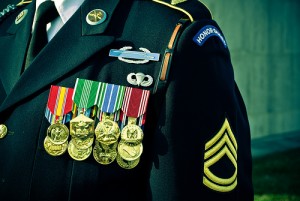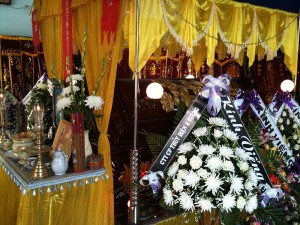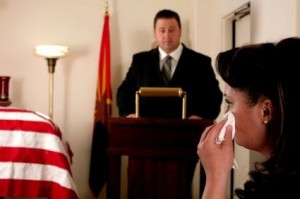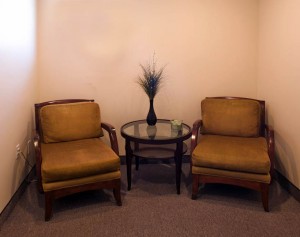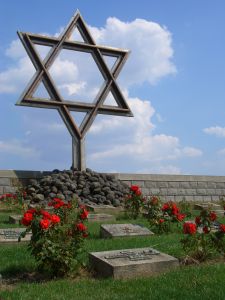 Judaism teaches that traditional funerals are to be within the days immediately flowing death. There are certain circumstances, such as waiting for traveling family members, that are often allowed, but not encouraged. Cremation is often avoided in the Jewish faith, as to not disturb the natural decomposition of the body. The beliefs and customs taught here by Judaism are based on the Torah. The Jewish philosophy is that one should embrace life and accept death. And that living a praiseworthy life will prepare you for the afterlife.
Judaism teaches that traditional funerals are to be within the days immediately flowing death. There are certain circumstances, such as waiting for traveling family members, that are often allowed, but not encouraged. Cremation is often avoided in the Jewish faith, as to not disturb the natural decomposition of the body. The beliefs and customs taught here by Judaism are based on the Torah. The Jewish philosophy is that one should embrace life and accept death. And that living a praiseworthy life will prepare you for the afterlife.
Funeral Preparation
Dating back to Biblical times, earth burials have become the most commonly practiced burials in traditional Judaism. A Viewing of the deceased is not a custom that Judaism allows. It is thought that looking at person who cannot look back is disrespectful, which is why most Jewish funerals are closed casket services. Unless local laws require embalming, it is often avoided. A simple wood casket made from pine or walnut wood containing no metal is used to carry out the earth burial.
A purification of the deceased body is done by The Chevra Kadisha. This is a sacred society made up of a group of men and women who perform the ritual of cleansing and preparing the body for burial. A white gown with no pockets or decorations, called a Tachrichim, is worn for burial. It symbolizes that when mortals leave this world they take nothing with them, and judgment from God is based on merits and good deeds, not materialistic belongings.
Mourners
In Judaism a mourner is considered to be Kaddish related. This means that the mourners are obligated to observe and conduct the rites of mourning. Parents, spouses, siblings and children of the deceased are considered mourners and it is their responsibility to make sure that proper Jewish funeral rites are carried out.
The Service
Traditional Jewish funerals take place in a temple, synagogue or graveside. Funeral guests dress conservatively. Men wear a head covering called a kippah or yarmulke, and most often a suite and tie. Women are not required to wear head coverings, however, they do not wear short sleeves, short skirts or open toed shoes.
You will notice that most Jewish funerals will not have many flower arrangements other than one or two small casket tributes. Most Jewish funerals ask that a charitable donation be made instead of sending flowers.
Family members (mourners) will more than likely be in a waiting room or in a vehicle prior to the service. This is because it is disrespectful to talk to the mourners before the burial. No condolences are to be offered until after the service is over.
Traditional Jewish services usually last about 20 minutes and consist of several Scripture readings, Psalms, prayers and a eulogy. The Rabbi will lead the congregation through the service beginning with the cutting of a black ribbon. Participation is encouraged throughout the prayers.
Prior to or after the service the mourners perform the ritual K’riah. It is an ancient custom, traditionally tearing garments, but has now evolved into attaching a black ribbon to the outside of the clothing worn by the mourners. A special prayer is said during the cutting of the ribbon: ‘Dayan Ha’emet‘ meaning ‘Blessed is the judge of truth’.
- The ribbon is worn on the left side if they are mourning a parent.
- It is worn on the right side for all other Kaddish relatives.
- The ribbons are traditionally worn for 7 days. However, the mourners of a parent wear it for 30 days.
Burial
Chairs surround the burial site for the mourners to sit. Friends and family will stand or sit surrounding the family during the burial. Prayers are said along with Chesed Shel Emet which is considered the greatest act of kindness to the departed. Where mourners and guests take part in the burial by placing a handful or shovel full of dirt or rocks in the grave.
A Shura is then formed by the guests at the service. It is a double line facing each other forming a pathway for the mourners to pass through and receive words of condolences. This will be the first time that mourners will receive any comforting words from guests at the service. A traditional expression often said to the family during the Shura is “‘Ha-Makom yenahem etkhem b’tokh sha ar aveilei Tzion v Yerushalayim’ meaning ‘May the Omnipresent comfort you among all the mourners of Zion and Jerusalem’.
- Washing your hands when leaving the cemetery is customary in the Judaism. You may do this at home or before you enter the Shiva home.
Shiva Home
Following Jewish tradition a Shiva is held at the home of the mourners. This is one of the most meaningful traditions in the Jewish faith. The community will offer a meal for the mourners at their home. Family and guests will attend to console and express sympathy to the family.
- The Shiva is a seven-day period for mourning beginning the day of burial. Mourners will stay home during this time. The only time a mourner will leave home is on Shabbat to attend a service in the Synagogue. Everyday during the seven days there will be three prayer services at the home when the mourners will recite the Kaddish prayer.
During the seven days of Shiva it is appropriate to visit the home of the bereaved. You may notice that mirrors are covered, candles are lit, men are unshaven and women are not wearing makeup. This is a tradition that symbolizes the great disruption the death has brought to the family.
